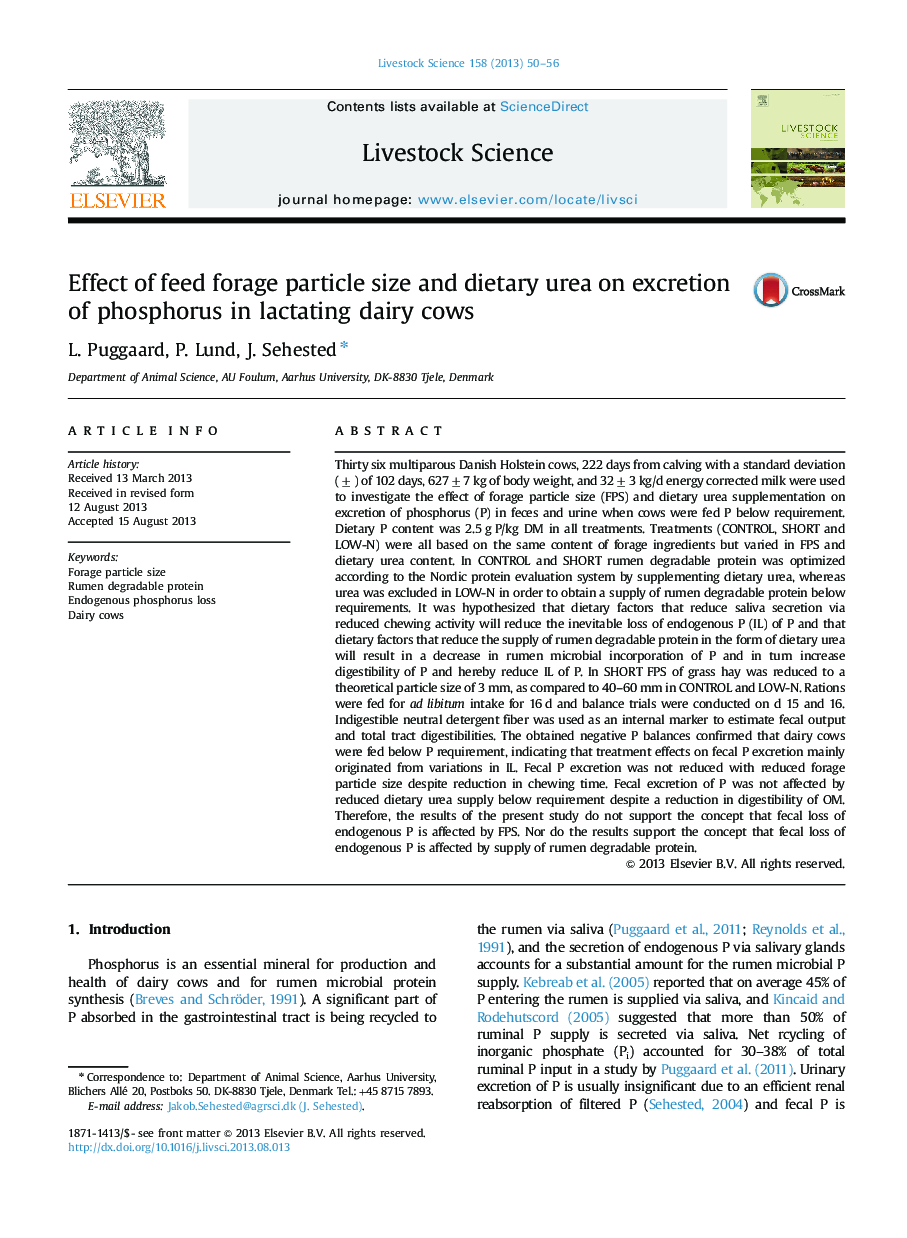| Article ID | Journal | Published Year | Pages | File Type |
|---|---|---|---|---|
| 5790290 | Livestock Science | 2013 | 7 Pages |
Abstract
Thirty six multiparous Danish Holstein cows, 222 days from calving with a standard deviation (±) of 102 days, 627±7 kg of body weight, and 32±3 kg/d energy corrected milk were used to investigate the effect of forage particle size (FPS) and dietary urea supplementation on excretion of phosphorus (P) in feces and urine when cows were fed P below requirement. Dietary P content was 2.5 g P/kg DM in all treatments. Treatments (CONTROL, SHORT and LOW-N) were all based on the same content of forage ingredients but varied in FPS and dietary urea content. In CONTROL and SHORT rumen degradable protein was optimized according to the Nordic protein evaluation system by supplementing dietary urea, whereas urea was excluded in LOW-N in order to obtain a supply of rumen degradable protein below requirements. It was hypothesized that dietary factors that reduce saliva secretion via reduced chewing activity will reduce the inevitable loss of endogenous P (IL) of P and that dietary factors that reduce the supply of rumen degradable protein in the form of dietary urea will result in a decrease in rumen microbial incorporation of P and in turn increase digestibility of P and hereby reduce IL of P. In SHORT FPS of grass hay was reduced to a theoretical particle size of 3 mm, as compared to 40-60 mm in CONTROL and LOW-N. Rations were fed for ad libitum intake for 16 d and balance trials were conducted on d 15 and 16. Indigestible neutral detergent fiber was used as an internal marker to estimate fecal output and total tract digestibilities. The obtained negative P balances confirmed that dairy cows were fed below P requirement, indicating that treatment effects on fecal P excretion mainly originated from variations in IL. Fecal P excretion was not reduced with reduced forage particle size despite reduction in chewing time. Fecal excretion of P was not affected by reduced dietary urea supply below requirement despite a reduction in digestibility of OM. Therefore, the results of the present study do not support the concept that fecal loss of endogenous P is affected by FPS. Nor do the results support the concept that fecal loss of endogenous P is affected by supply of rumen degradable protein.
Related Topics
Life Sciences
Agricultural and Biological Sciences
Animal Science and Zoology
Authors
L. Puggaard, P. Lund, J. Sehested,
